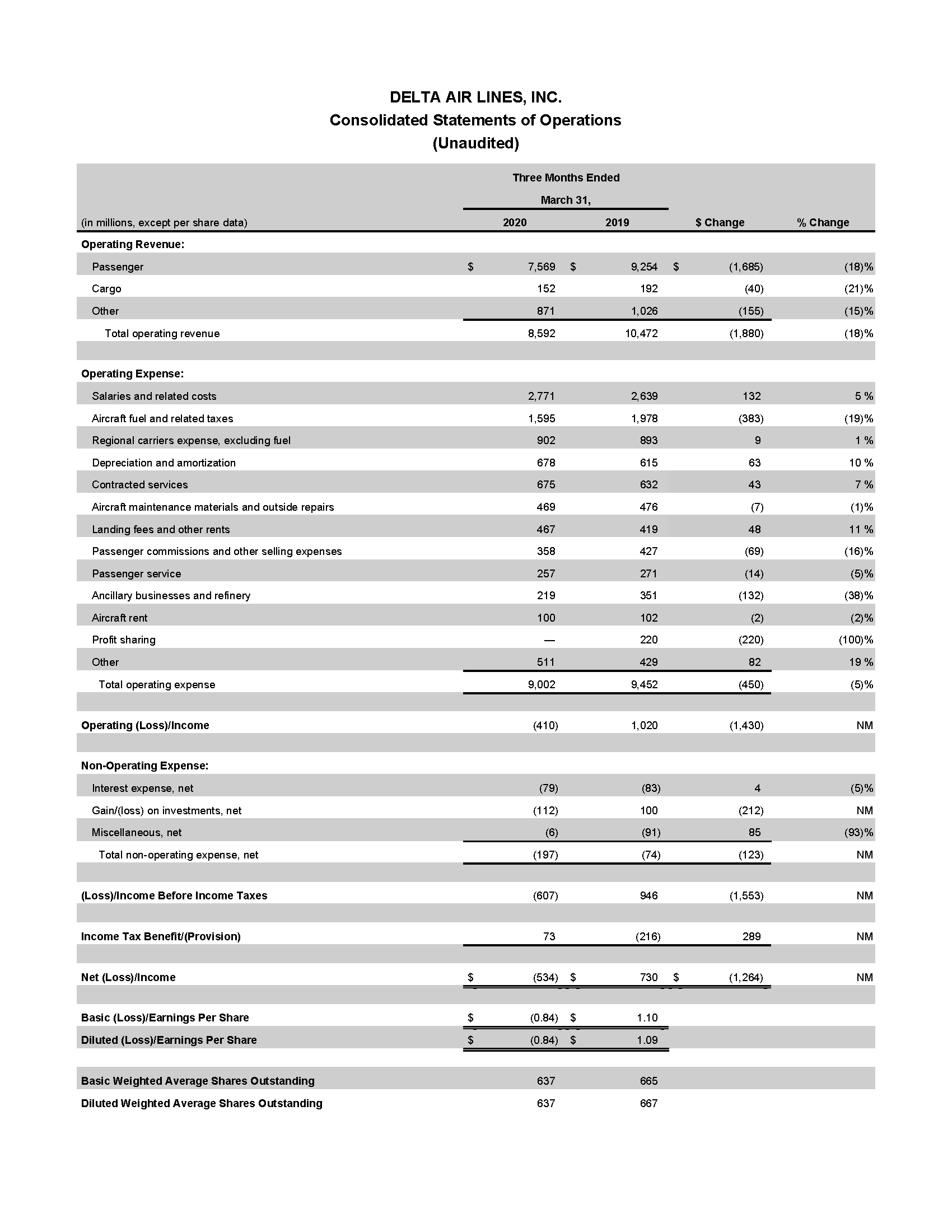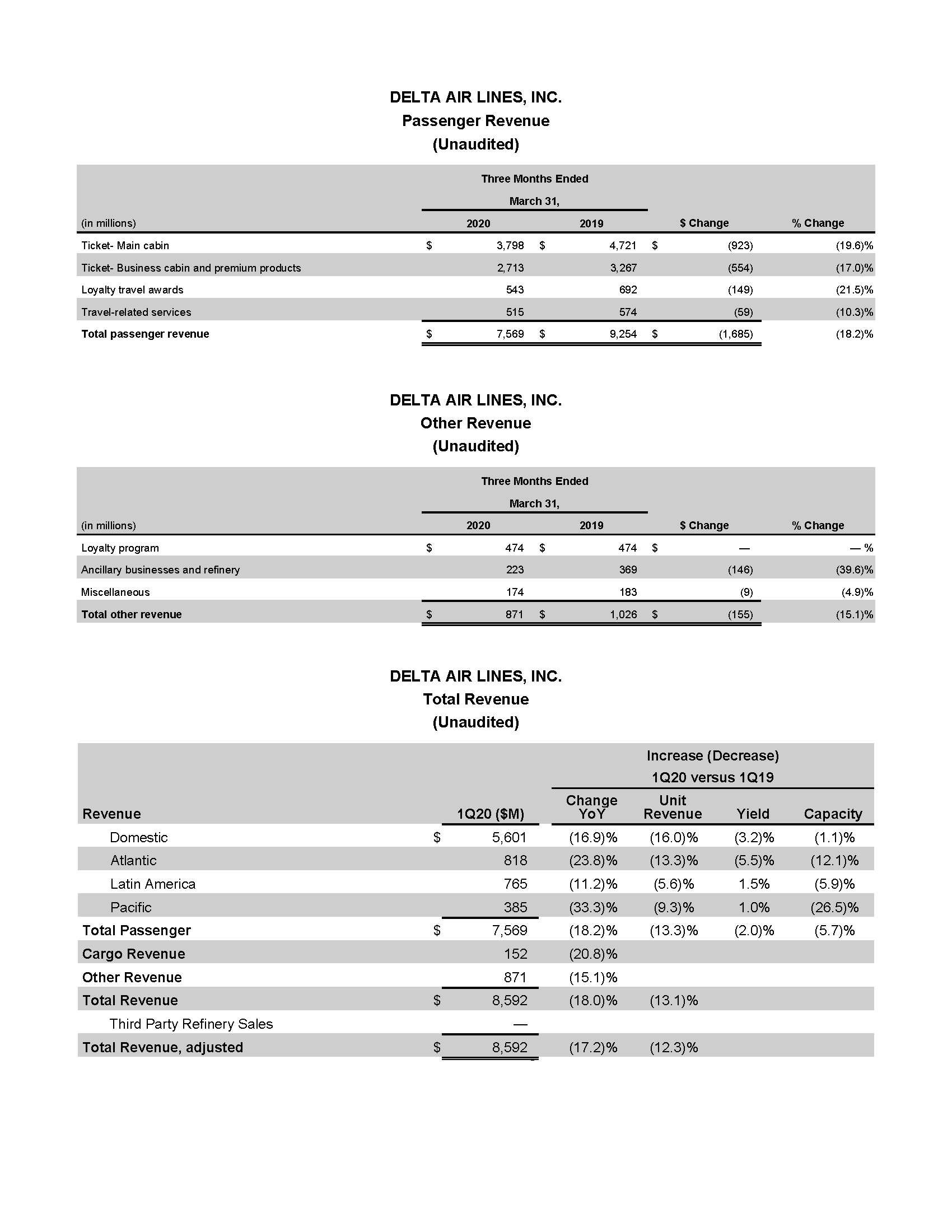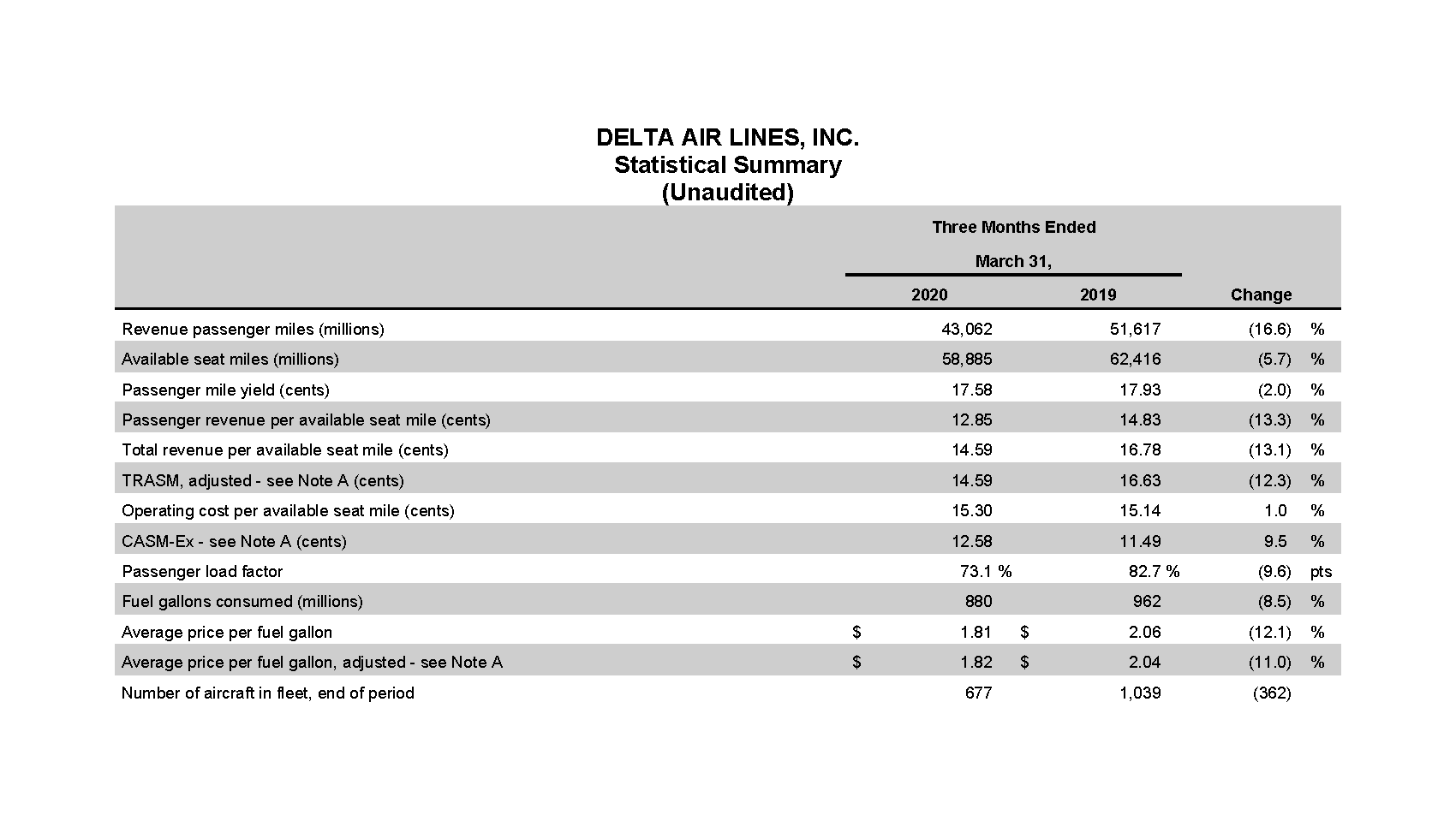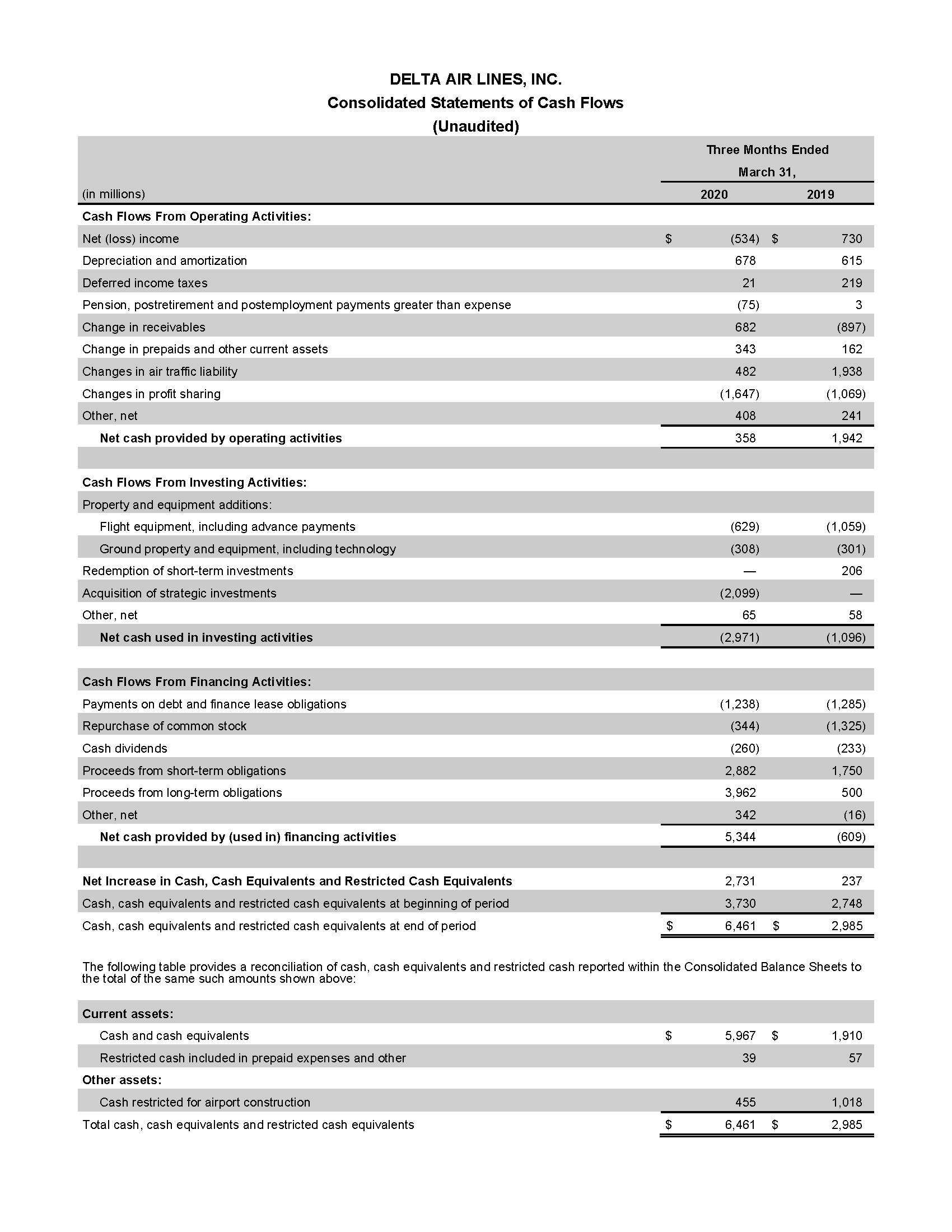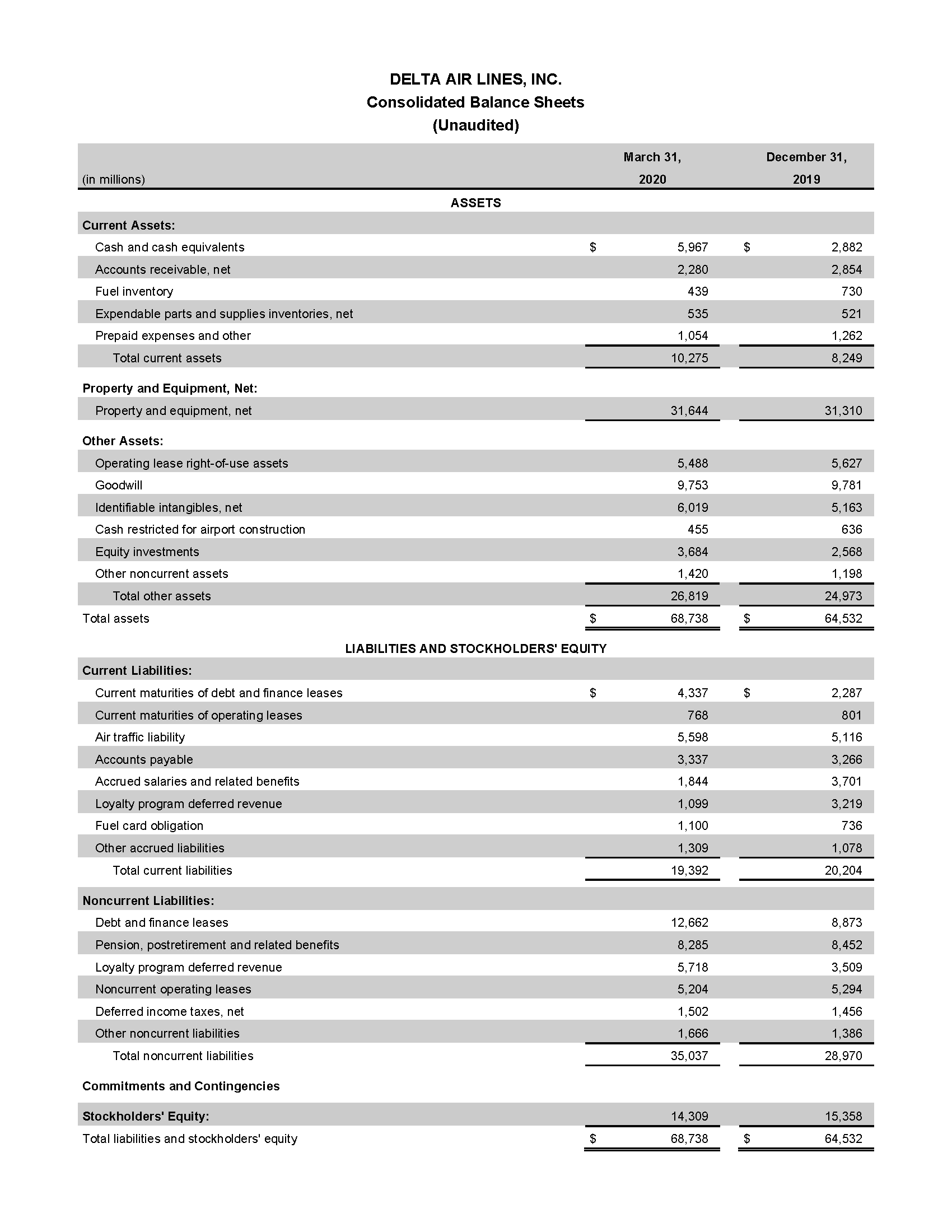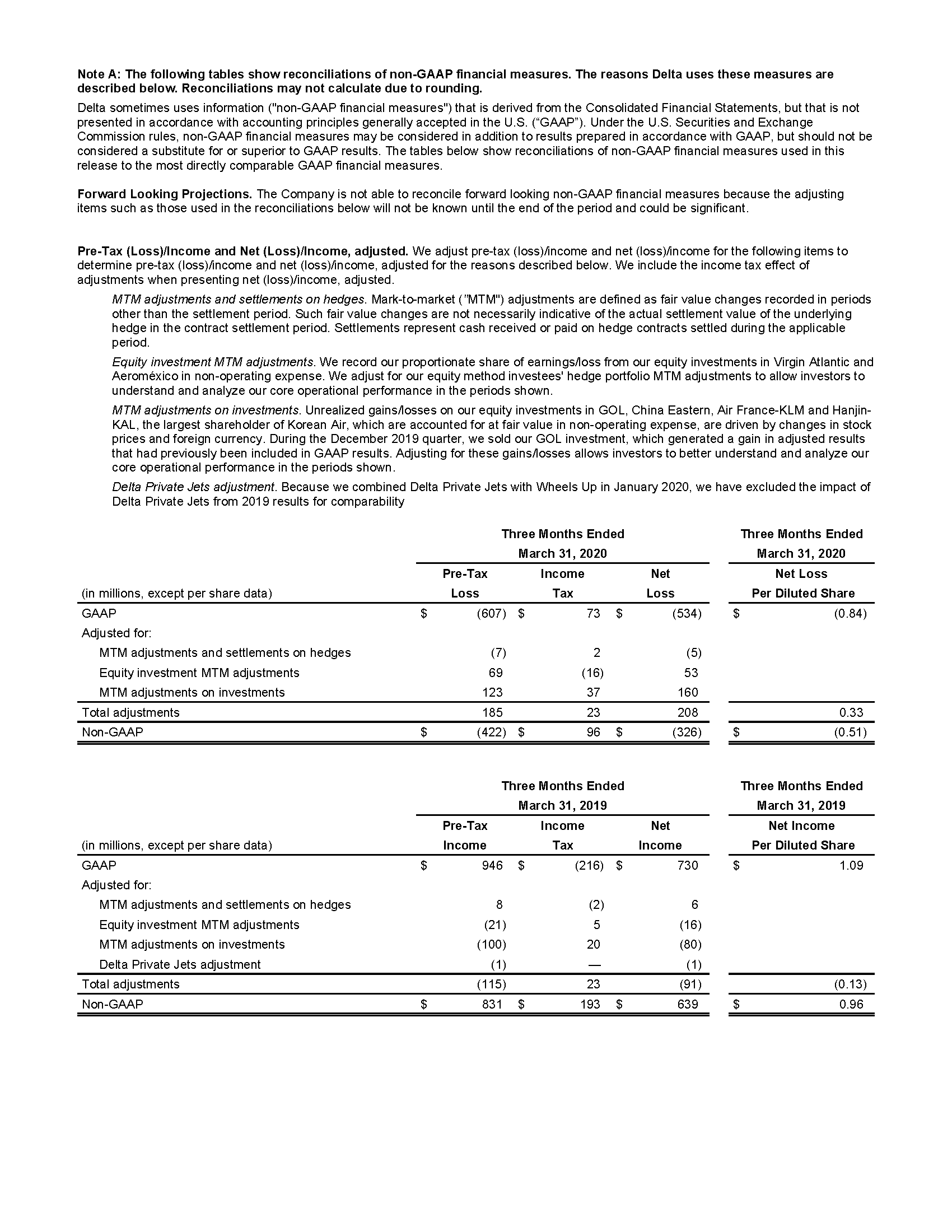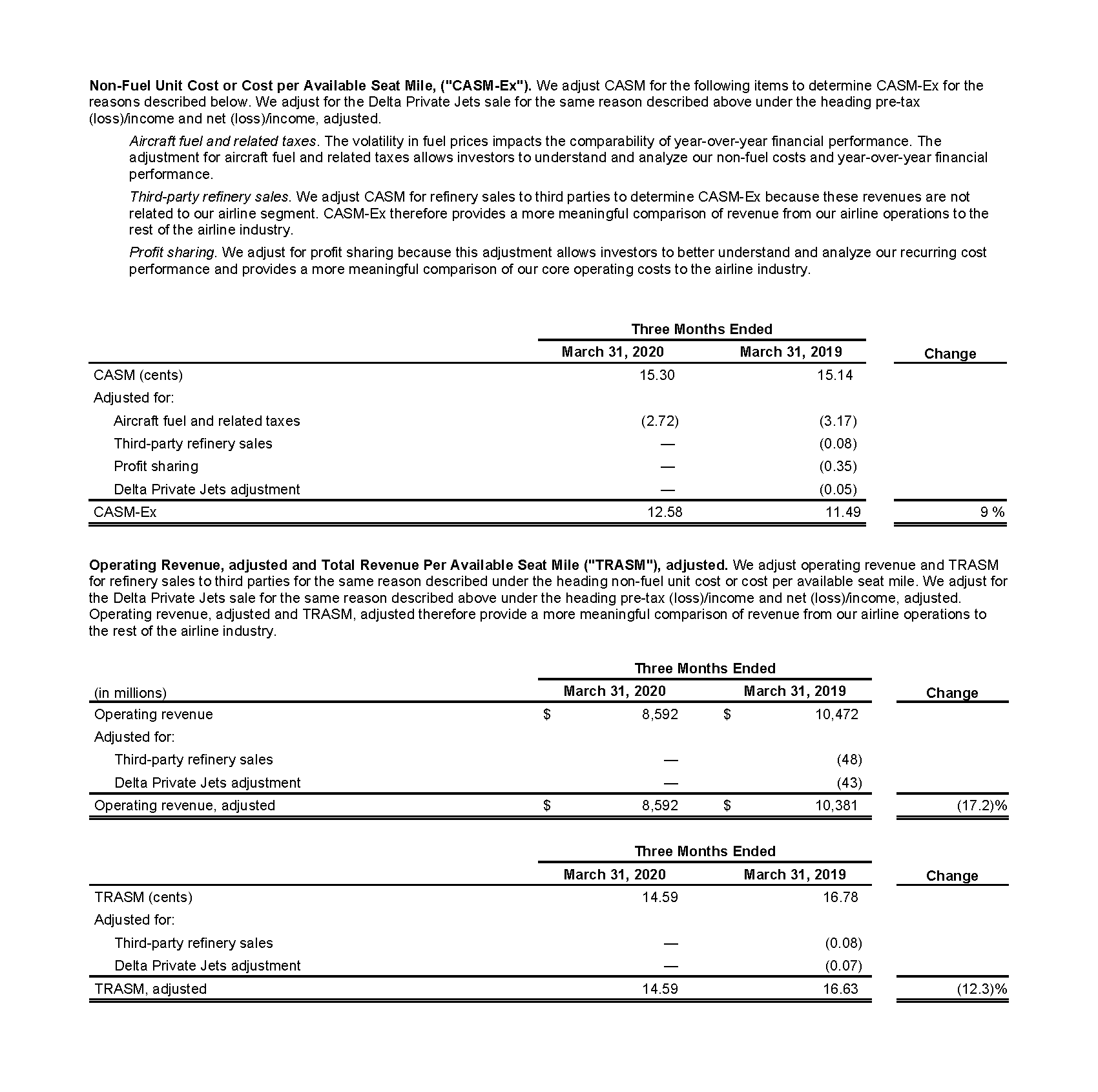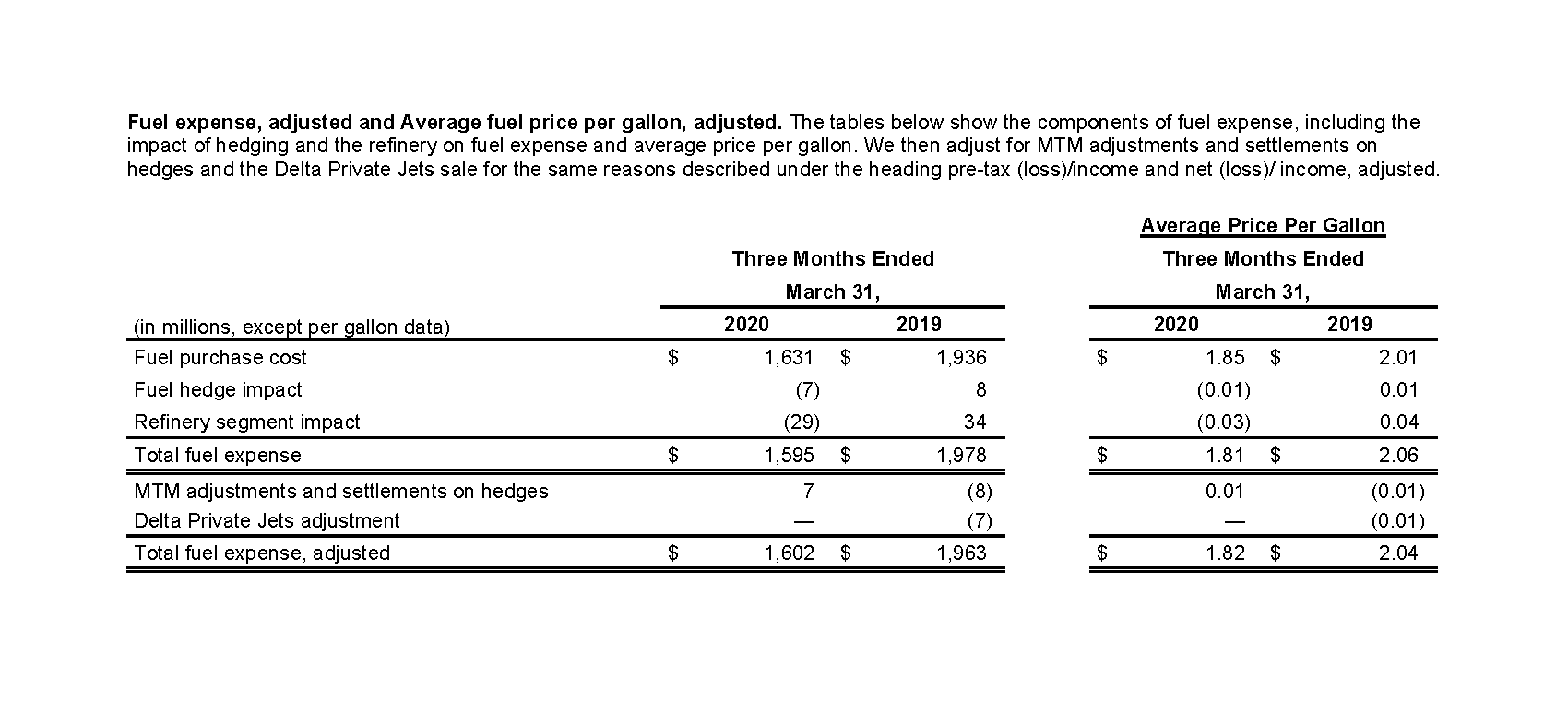 |
| Photo Delta |
“These are truly unprecedented times for all of us, including the airline industry. Government travel restrictions and stay-at-home orders have been effective in slowing the spread of the virus, but have also severely impacted near-term demand for air travel, reducing our expected June quarter revenues by 90 percent, compared to a year ago” said Ed Bastian, Delta’s chief executive officer.
The airline released its latest results and response to the continued coronavirus COVID-19
Network and Customer Experience
To address the challenges of COVID-19, the company is taking the following actions:
Making significant capacity reductions for the June quarter versus prior year with total system capacity down 85 percent, including domestic down by 80 and international capacity down by 90 percent
Adopting new cleaning procedures on all flights, including fogging on all aircraft overnight and sanitizing high-touch areas like tray tables, entertainment screens, armrests and seat-back pockets before boarding
Taking steps to help employees and customers practice social distancing, including blocking middle seats, pausing automatic upgrades, modifying our boarding process and moving to essential meal service only
Extending 2020 Medallion Status an additional year, rolling Medallion Qualification Miles into 2021, and extending Delta SkyMiles American Express Card benefits and Delta Sky Club memberships
Giving customers flexibility to plan, re-book and travel including extending expiration on travel credits to two years
Community Response
Delta and its 90,000 employees are taking an active role in our nation’s fight against the virus by:
Offering free flights to medical professionals fighting COVID-19 in the hardest-hit areas of the U.S.
Chartering international cargo-only flights to provide healthcare workers with materials needed to do their jobs
Operating charters and specially approved scheduled flights to nations around the world to repatriate more than 28,000 people displaced by the virus to the U.S.
Manufacturing tens of thousands of face shields and masks at Delta Flight Products to aid healthcare workers
Partnering with the U.S. military to develop and manufacture secure, sterile transport pods at Delta TechOps, which will safely transit infected personnel to hospitals and medical centers
Donating over 200,000 pounds of food to hospitals, first responders, community food banks, and organizations including Feeding America
Expense Management
The company expects June quarter total expenses to decline by approximately 50%, or $5 billion, over prior year due to reduced capacity, lower fuel and cost initiatives, including:
Parking more than 650 aircraft
Consolidating airport facilities, with temporary concourse and Delta Sky Club closures
Instituting a company-wide hiring freeze and offering voluntary leave options with 37,000 employees taking short-term unpaid leave
Reducing salary expense through pay reductions for executive management and reduced work schedules across organization
Balance Sheet, Cash and Liquidity
Delta's top financial priority remains preserving cash and enhancing liquidity. Accordingly, the company has taken the following actions:
Raised $5.4 billion of capital since early March, including securing a $3.0 billion secured term loan, closing $1.2 billion in aircraft sale leasebacks, issuing $1.1 billion in AA, A and B tranches of our 2020-1 Enhanced Equipment Trust Certificates (EETC), and funding $150 million in private aircraft mortgages to enhance liquidity and satisfy maturing obligations
Drew down $3 billion under existing revolving credit facilities
Reduced planned capital expenditures by more than $3 billion, including working with original equipment manufacturers to optimize the timing of our future aircraft deliveries and deferring aircraft mods, IT initiatives, and ground equipment refreshment
Extended payment terms with airports, vendors and lessors
Suspended shareholder returns, including the Company’s stock repurchase program and future dividend payments
CARES Act Relief
The company expects to receive relief from the Coronavirus Aid, Relief and Economic Security (CARES) Act in the following forms:
Payroll support of $5.4 billion, comprised of $3.8 billion of direct relief and a $1.6 billion low-interest, unsecured 10-year loan. Delta has already received $2.7 billion of these funds and expects to receive the remainder over the next three months. As consideration, the U.S. Treasury will receive warrants to purchase over 6.5 million shares of Delta common stock at a strike price of $24.39 with a 5-year maturity
Eligibility for $4.6 billion in secured loans, if the company chooses to apply and accept funds
“With the significant impact of COVID-19 on Delta’s revenue, we were burning $100 million per day at the end of March. Through our decisive actions, we expect that cash burn to moderate to approximately $50 million per day by the end of the June quarter,” said Paul Jacobson, Delta’s chief financial officer. “The decade of work we put into the balance sheet to lower debt and build unencumbered assets has been critical to our success in raising capital and we expect to end the June quarter with approximately $10 billion in liquidity.”
 |
| Photo Delta |
March Quarter Results
Adjusted results primarily exclude the impact of mark-to-market ("MTM") adjustments.
- Adjusted pre-tax loss of $422 million or $0.51 per share
- Total revenue of $8.6 billion, down 18 percent versus prior year, with total unit revenue down 13 percent
- Total expense decreased $450 million driven by lower fuel, partially offset by higher revenue- and capacity-related expenses, with non-fuel unit cost (CASM-Ex) up 9 percent compared to prior year
- Fuel expense decreased 19 percent relative to March quarter 2019. Delta’s fuel price for the March quarter of $1.81 per gallon included a $29 million benefit from the refinery
- At the end of the March quarter, the company had $6.0 billion in unrestricted liquidity
Forward Looking Statements
Statements in this press release that are not historical facts, including statements regarding our estimates, expectations, beliefs, intentions, projections or strategies for the future, may be "forward-looking statements" as defined in the Private Securities Litigation Reform Act of 1995. All forward-looking statements involve a number of risks and uncertainties that could cause actual results to differ materially from the estimates, expectations, beliefs, intentions, projections and strategies reflected in or suggested by the forward-looking statements. These risks and uncertainties include, but are not limited to, the material adverse effect that the COVID-19 pandemic is having on our business; the impact of incurring significant debt in response to the pandemic; possible effects of accidents involving our aircraft; breaches or security lapses in our information technology systems; disruptions in our information technology infrastructure; our dependence on technology in our operations; the performance of our significant investments in airlines in other parts of the world; the restrictions that financial covenants in our financing agreements could have on our financial and business operations; labor issues; the effects of weather, natural disasters and seasonality on our business; the effects of an extended disruption in services provided by third parties; the cost of aircraft fuel; the availability of aircraft fuel; failure or inability of insurance to cover a significant liability at Monroe’s Trainer refinery; the impact of environmental regulation on the Trainer refinery, including costs related to renewable fuel standard regulations; our ability to retain senior management and key employees; damage to our reputation and brand if we are exposed to significant adverse publicity; the effects of terrorist attacks or geopolitical conflict; competitive conditions in the airline industry; interruptions or disruptions in service at major airports at which we operate; the effects of extensive government regulation on our business; the impact of environmental regulation on our business; and the sensitivity of the airline industry to prolonged periods of stagnant or weak economic conditions; uncertainty in economic conditions and regulatory environment in the United Kingdom related to the exit of the United Kingdom from the European Union.
Additional information concerning risks and uncertainties that could cause differences between actual results and forward-looking statements is contained in our Securities and Exchange Commission filings, including our Annual Report on Form 10-K for the fiscal year ended Dec. 31, 2019 and our Quarterly Report on Form 10-Q for the quarterly period ended March 31, 2020. Caution should be taken not to place undue reliance on our forward-looking statements, which represent our views only as of April 22, 2020, and which we have no current intention to update.
Recommended for you...


